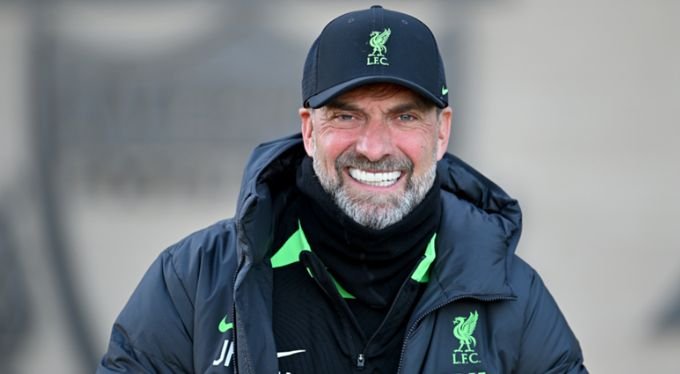Jürgen Klopp
Jürgen Klopp turned his passion for football into a unique form of leadership. From his early days at Mainz to his glorious years at Liverpool, his contagious energy, close bond with players, and unwavering commitment to the values of the sport have made him one of the most influential managers of the 21st century.

Klopp’s Inner Fire: Passion as His Guiding Principle
Jürgen Klopp didn’t reach the top by chance. His journey, filled with difficult decisions and personal bets, is defined by one constant: an unbreakable passion for football. That energy has been the driving force behind his evolution from a modest defender at Mainz 05 to one of the most influential managers of the 21st century.
Watching Klopp on the touchline—gesturing wildly, embracing his players, or confronting the fourth official with blazing eyes—one sees no performance. It’s pure expression of the same passion that has driven him since childhood. Raised in the Black Forest city of Stuttgart, it was his father, Norbert, who introduced him to sport not just as a game but as a way of life. That family legacy lives on in every team talk he gives.
From Mainz to the Dortmund Miracle
In 2001, Klopp took charge of Mainz 05, the club where he had played for more than a decade. With no previous coaching experience, he immediately stamped his identity on the squad: intensity, dedication, and belief in the collective. By 2004, he had led them to their historic promotion to the Bundesliga. But it was at Borussia Dortmund where his passion evolved into a cultural phenomenon.
He arrived in 2008, when the club was in a state of financial and sporting uncertainty. With a clear idea based on high pressing, quick transitions, and emotional commitment to the badge, Klopp built a team that defied expectations. In 2011 and 2012, they won the Bundesliga, breaking Bayern’s dominance, and in 2013 they reached the Champions League final. None of this was achieved with superstar budgets, but with committed players and a coach who breathed football day and night.
Liverpool: Identity, Rebuilding and Legacy
When Klopp joined Liverpool in October 2015, he inherited a club with heritage but lacking direction. He promised “football that people would love,” and he delivered. Every step was marked by emotional intensity—from losing the Europa League final in 2016 to winning the Champions League in 2019 and finally ending the 30-year Premier League drought in 2020. His passion didn’t fade—it became the team’s engine of resilience.
What sets Klopp apart isn’t just sporting success. His relationship with the Anfield crowd is emotional, even spiritual. He sings with them, cries with them, and loses with them. During difficult moments, like the injury-stricken 2020–21 season played in empty stadiums, he remained steady, projecting confidence with a mix of humanity and fire.
Leadership Beyond the Pitch
Klopp has become a reference beyond the boundaries of sport. In interviews, he speaks openly about mental health, empathy, sustainability, and even politics. He has defended players’ right to express themselves and opposed the European Super League, arguing that football belongs to the people, not to billionaires.
In his personal life, the same passion that guides him in football defines his values. He is married to Ulla Sandrock, a writer and former social worker, with whom he shares a humanistic view of the world. Far from luxury excesses, Klopp has said he needs nothing more than his people, his dog, his beer, and football.
Emotional Intensity as a Method
For Klopp, training sessions are not just about tactics—they are moments to connect emotionally with the player. He likes to engage with each team member, to know how they are off the pitch. That closeness has helped him elevate players who were once overlooked into key figures, as seen with Trent Alexander-Arnold or Jordan Henderson.
His passion is not an accessory—it’s the core of his methodology. His playing style demands total commitment and emotional involvement in the project. Through authentic gestures, powerful speeches, and a unifying vision, he creates a sense of belonging that pushes his teams beyond their market value.
A Lasting Influence on Modern Football
Klopp’s legacy can’t be measured by trophies alone. He has inspired a new generation of managers who admire his connection with players and his ability to motivate without clichés. Coaches like Julian Nagelsmann, Thomas Frank, and Xabi Alonso recognize in him a model of emotional leadership that redefines how teams are built and led.
In a football world increasingly dominated by data analysis and investment funds, Klopp is a reminder that the game is also about soul, body, and heart. His story shows that when passion is taken seriously and shaped with discipline, it can transform individuals, clubs, and entire cities.
